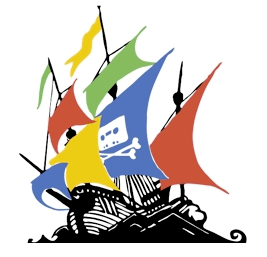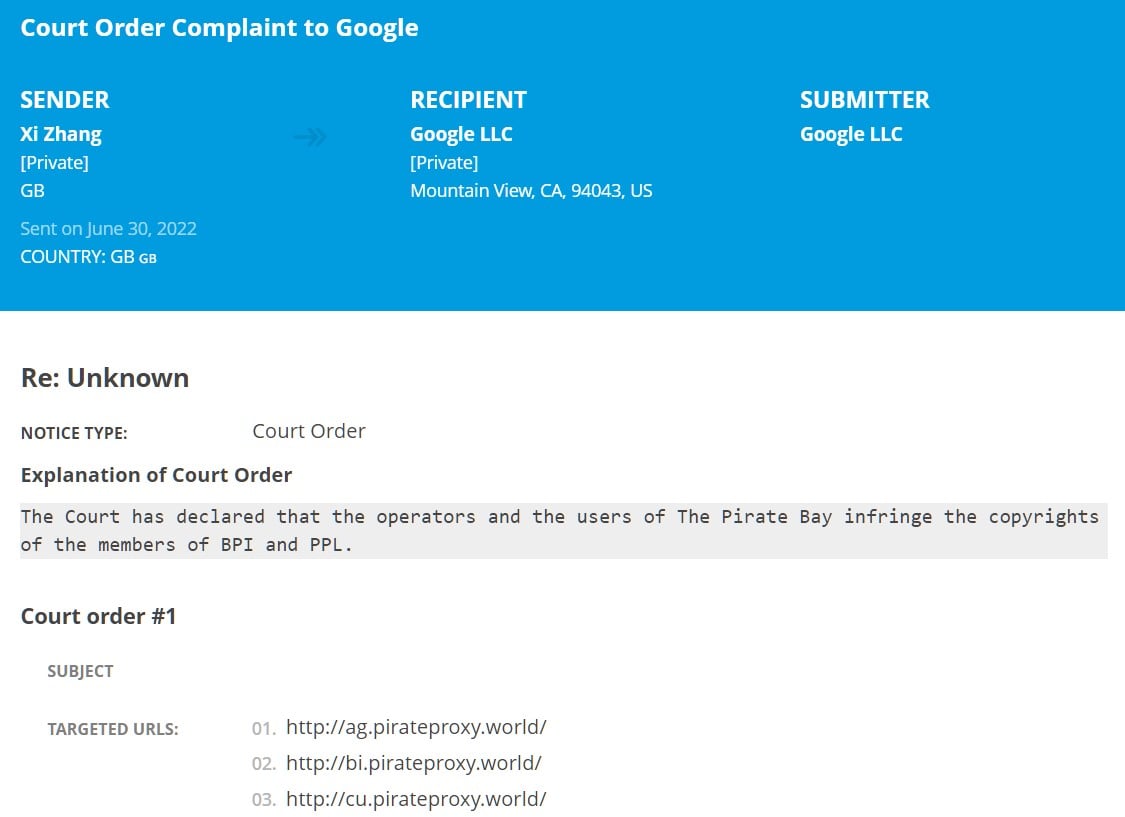Last year, we noticed that Google had delisted several popular pirate sites from its search results in some countries.
In the Netherlands, for example, The Pirate Bay and many of its mirrors and proxies were delisted by Google in response to a notice sent by local anti-piracy group BREIN.
Later, we learned that similar requests were being sent to Google by movie company representatives in other countries. In response, Google removed thousands of URLs from its search engine in countries such as France, Norway, and the UK. In all cases, the domains were already blocked by ISPs following a court order.
Google’s Blocking Reversal
Google’s decision to voluntarily take action is noteworthy. The company apparently removed thousands of ‘pirate site’ domain names without being named in a lawsuit and despite earlier objections to this type of whole-site blocking, of which it doubted the efficacy.
The search engine has clearly changed its views, much to the delight of rightsholders. That said, Google still needs a nudge to spring into action. In the UK, for example, The Pirate Bay remained in Google’s search engine while hundreds of smaller sites were delisted.
Initially, it wasn’t clear why The Pirate Bay remained unblocked but, in hindsight, the explanation appears to be quite straightforward.
The blocking notices that were sent to Google came from the UK law firm Wiggins, which works for the movie industry. The Pirate Bay blocking order, however, was obtained by the music groups BPI and PPL. Apparently, these groups hadn’t sprung into action yet.
BPI/PPL Ask Google to Delist Pirate Bay URLs
In recent weeks the UK music groups got on the bandwagon. The first request, sent by BPI and PPL, asked Google to delist the main Thepiratebay.org URL from its search results and the company swiftly complied.
Since then, several other requests have come in, targeting hundreds of Pirate Bay proxies. For example, earlier this month a BPI/PPL notice identified 486 additional blocking targets, although half of these appear to be duplicated. A week earlier, a similar notice targeted 73 ‘Pirate Bay’ URLs.
As a result of these actions, it’s now harder to find Pirate Bay proxies through Google. And indeed, a simple search for The Pirate Bay in the UK now comes with a notice at the bottom of the results, indicating that several URLs were removed in response to a legal request.
The BPI informs us that it already asked Google to delist The Pirate Bay when the first blocking order was obtained in 2012. At the time, Google declined to do so but the search engine eventually changed its tune.
“Things have moved on a bit since then and Google is now prepared to delist sites which are the subject of Court Orders,” a BPI spokesperson informed us.
“It’s been a long time coming, and clearly not everyone uses Google to find infringing sites, but we are pleased that the biggest search engine in the world is now taking these steps, because the less visibility an illegal site has, the less it will be accessed.”
More Targets?
By now, it’s clear that the music industry groups have discovered their new power. However, as far as we can see their actions have been limited to The Pirate Bay. That’s noteworthy, as the music industry groups also obtained ISP blocking orders against many other sites.
The popular torrent sites 1337x, LimeTorrents and TorrentDownloads remain accessible through Google, despite a BPI blocking order. The same is true for the music download portal NewAlbumReleases and cyberlocker Nitroflare.
Even the blocking order for popular YouTube download tools such as Flvto.biz, 2Conv.com, 2Convert.net, and mp3.studio has yet to reach Google. This, despite the fact that these sites are seen as the largest piracy threat to the industry.
It’s not clear why these other sites haven’t been reported but perhaps they will be targeted at a later stage. TorrentFreak asked BPI if that’s the case but, at the time of publication, we have yet to hear back.
 Last year, we noticed that
Last year, we noticed that 




